Vicodin is an opiate narcotic analgesic that is often prescribed in the United States to manage moderate to severe pain caused by burns, cancer, migraine headaches, and other pain-related conditions.
Understanding Vicodin Abuse
Learn More About Vicodin Addiction
In 2006, over 112 million doses of Vicodin were prescribed and by 2011, that number increased to over 131 million. Vicodin is composed of the synthetic opiate hydrocodone and acetaminophen, as both of these pain killers work together to reduce pain when used in tandem. In addition to analgesic properties, Vicodin also stimulates the pleasure center of the brain, causing a release of dopamine that leads to feelings of euphoria. It is the bliss caused by opiate narcotics such as Vicodin that give the drug a high potential for abuse.
Most individuals who are prescribed Vicodin to manage a pain-related condition take the drug as recommended by the physician, use it for the duration it was intended, then stop taking the Vicodin when the course of treatment is over. Some individuals, however, do not. These individuals come to enjoy the feelings of happiness and well-being provided by narcotics and often begin to abuse these drugs.
Prescribed in pill form to be taken by mouth, people who become addicted to Vicodin may crush the drug and snort it, chew it, or dissolve it in water to be able to inject it to produce a more intense rush of pleasure. In addition, many people who abuse Vicodin will use other drugs as well, leading to potentially serious consequences. Individuals who abuse Vicodin and another central nervous system depressant, such as benzodiazepines or alcohol run the risk of dangerously low respiration rate, which can cause respiratory failure and death. Others may mix Vicodin with stimulants in order to experience a more intense rush and negate some of the negative side effects of stimulant abuse. The combination of stimulants and CNS depressants can lead to cardiovascular complications such as heart failure and stroke.
Vicodin addiction can affect everything in an addict’s life, leaving the addict feeling alone and terribly frightened as their whole world is consumed by the drug. With proper detox, rehab, and therapy, recovery from Vicodin is possible.
Statistics
Statistics of Vicodin Addiction
Prescription drug abuse is a growing problem in the United States. Among these drugs, prescription narcotics continue to be a growing drug of abuse. According to the National Survey on Drug Use and Health, in 2009 over 23 million people over the age of 12 had used a form of hydrocodone for nonmedical purposes. In 2009, the American Associates of Poison Control Centers reported nearly 30,000 exposures and over 30 deaths associated with hydrocodone-containing narcotics. One of every five teenagers has used Vicodin for a nonmedical purpose, and a number of these teens will later become addicted.
Causes
Causes and Risk Factors for Vicodin Abuse
In most cases of addiction, there is not a single identifiable root cause. Rather, it’s thought that a combination of factors work together to cause addiction. Some of the more common causes for Vicodin addiction include:
Genetic: Those who have a first-degree relative, such as a parent or sibling, who struggles with addiction are at a much higher risk for developing an addiction to Vicodin or other substances. While this is not a definitive indicator that addiction will develop, it is a contributing factor.
Brain Chemistry: As opiate narcotics such as Vicodin stimulate the pleasure center of the brain and release a surge of dopamine when used, unabashed happiness will result. Individuals who are born with fewer dopamine receptors in their brain may use Vicodin to create an artificial happiness boost.
Environmental: Those who grow up in a home where life is cluttered and chaotic are at greater risk for developing an addiction later in life. This risk is compounded when a parent or guardian abuses drugs in front of the individual, thereby reducing the stigma of drug addiction and increasing the risk for the development of addiction. In addition, people who begin to abuse drugs at a younger age are at a greater risk for developing addiction.
Psychological: As Vicodin produces its delightful effects by flooding the brain with dopamine, individuals who struggle with anxiety or depressive disorders may use Vicodin as a means to self-medicate the symptoms of their untreated mental illness.
Signs
Signs and Symptoms of Vicodin Abuse
The symptoms of Vicodin addiction will differ from person to person depending upon the individual’s genetic makeup, the length of time the drug is abused, the frequency of use, and the amount of the narcotic taken. The most common symptoms of Vicodin abuse include the following:
Mood symptoms:
- Blissful euphoria
- Depression
- Anxiety
- Feelings of well-being
- Mood swings
Behavioral symptoms:
- Neglecting personal appearance
- Using the drug despite the negative consequences
- Lying or stealing money from loved ones and friends
- Forging prescriptions
- Visiting the emergency room with various pain complaints
- “Losing” prescriptions for Vicodin
- Visiting multiple doctors to obtain more prescriptions for Vicodin
- Stealing or borrowing Vicodin from friends and loved ones
- Lying to cover up amount of Vicodin being used
- Hiding Vicodin around the house, car, and at work
- Craving the drug when it is not available
- Decreased inhibitions
- Increase in risky behaviors
- Neglecting responsibilities at home, work, or school
- Withdrawing from loved ones
- Withdrawing from once-pleasurable activities
- Obsession with obtaining, using, and recovering from Vicodin
- Inability to focus on a task
Physical symptoms:
- Physical dependence upon Vicodin
- Drowsiness
- Liver damage
- Kidney damage
- Constipation
- Difficulty urinating
- Decreased respiration rate
- Bradycardia
Psychological symptoms:
- Psychological dependence upon Vicodin
- Feelings of immortality while high
- Cloudy thinking
- Impaired cognition
- Anxiety
- Fear
- Irritability
- Agitation
- Hallucinations
- Delusions
- Paranoia
Effects
Effects of Vicodin Abuse
The effects of addiction and abuse of substances such as Vicodin will differ among individuals according to the length of addiction, frequency of use, individual makeup, and amount of Vicodin consumed. Most common effects of chronic Vicodin abuse include:
- Crumbling interpersonal relationships
- Divorce
- Joblessness
- Financial ruin
- Legal problems
- Jaundice
- Liver damage
- Liver failure
- Itching
- Weakness
- Nausea and vomiting
Co-Occurring Disorders
Learn About Co-Occurring Disorders
Many individuals who become addicted to opiate narcotics like Vicodin have undertreated or undiagnosed mental illnesses. These co-occurring mental illnesses include:
- Depressive disorders
- Anxiety disorders
- Panic disorder
- Stimulant abuse
- Benzodiazepine abuse
- Alcoholism
- Bipolar disorder
- Schizophrenia
Effects of Withdrawal and Overdose
Effects of Withdrawal and Overdose for Vicodin Abuse
Withdrawing from Vicodin is not a particularly pleasant experience for anyone. The effects of Vicodin withdrawal will vary based upon the physical dependence the body has developed upon the drug. Withdrawal from any addiction should be performed in a proper rehab center with medical management to ensure that detox goes safely and smoothly. Most common effects of Vicodin withdrawal may include:
- Nausea and vomiting
- Cravings
- Diarrhea
- Anxiety
- Depression
- Restlessness
- Bone and muscle pain
- Chills and fever
- Suicidal thoughts and behaviors










